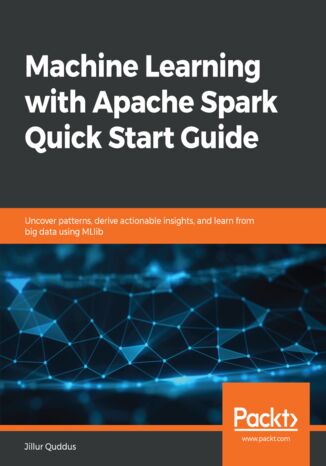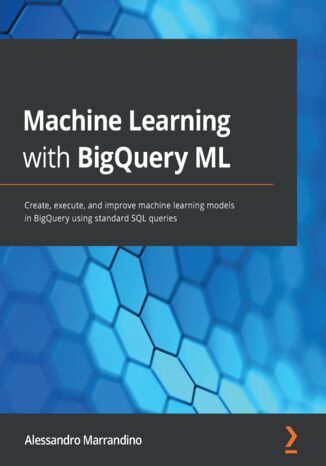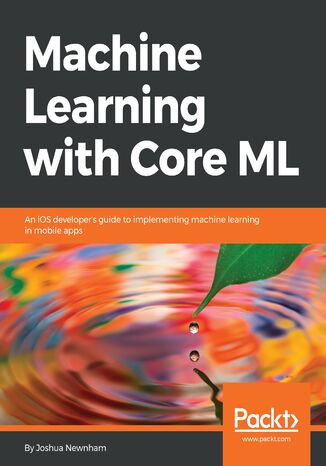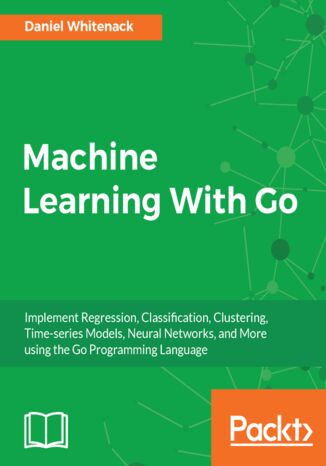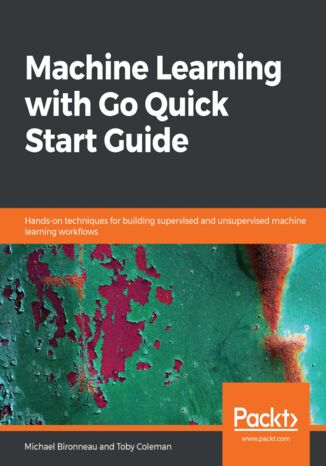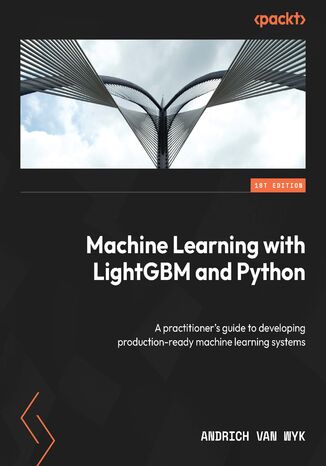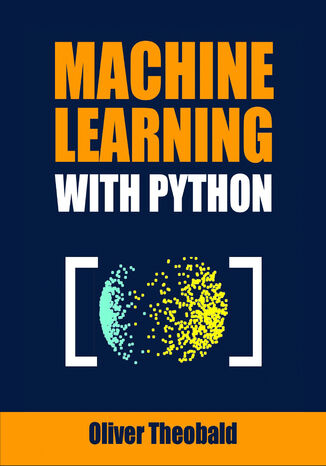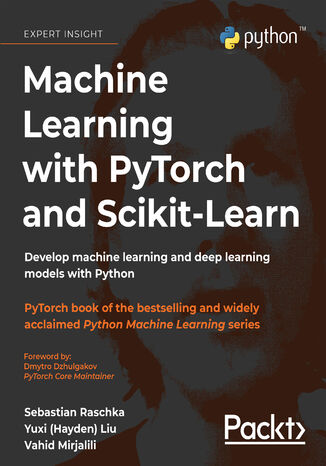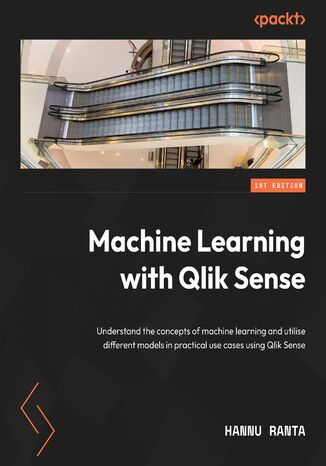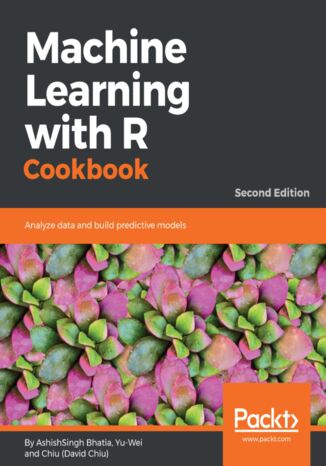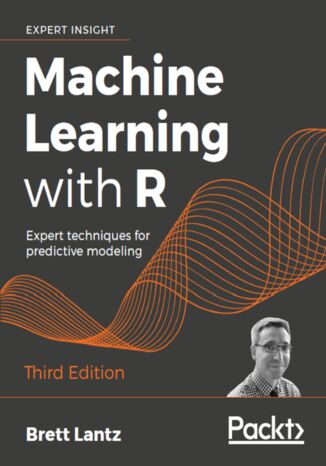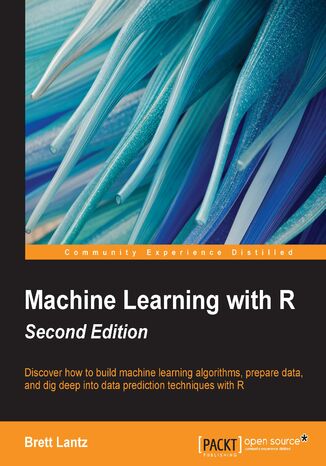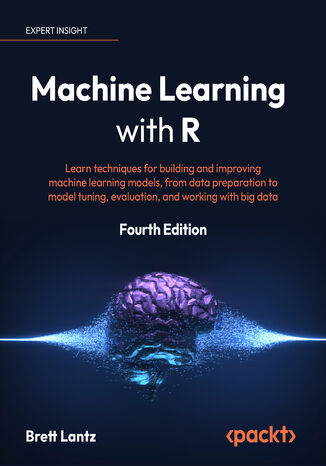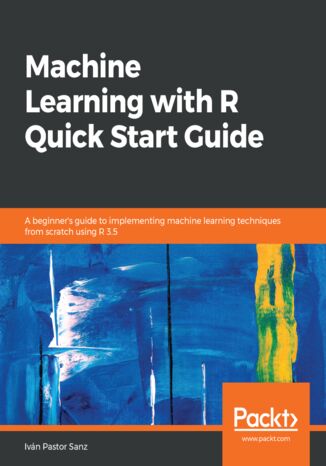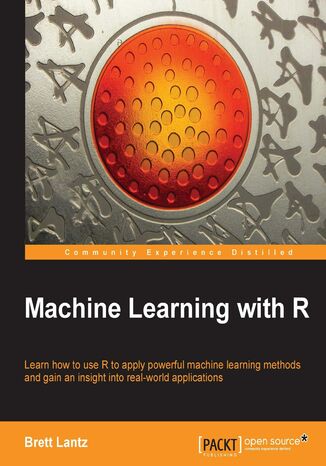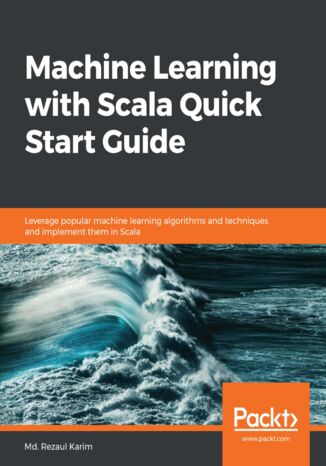Kategorie
Ebooki
-
Biznes i ekonomia
- Bitcoin
- Bizneswoman
- Coaching
- Controlling
- E-biznes
- Ekonomia
- Finanse
- Giełda i inwestycje
- Kompetencje osobiste
- Komputer w biurze
- Komunikacja i negocjacje
- Mała firma
- Marketing
- Motywacja
- Multimedialne szkolenia
- Nieruchomości
- Perswazja i NLP
- Podatki
- Polityka społeczna
- Poradniki
- Prezentacje
- Przywództwo
- Public Relation
- Raporty, analizy
- Sekret
- Social Media
- Sprzedaż
- Start-up
- Twoja kariera
- Zarządzanie
- Zarządzanie projektami
- Zasoby ludzkie (HR)
-
Dla dzieci
-
Dla młodzieży
-
Edukacja
-
Encyklopedie, słowniki
-
E-prasa
- Architektura i wnętrza
- BHP
- Biznes i Ekonomia
- Dom i ogród
- E-Biznes
- Ekonomia i finanse
- Ezoteryka
- Finanse
- Finanse osobiste
- Firma
- Fotografia
- Informatyka
- Kadry i płace
- Kobieca
- Komputery, Excel
- Księgowość
- Kultura i literatura
- Naukowe i akademickie
- Ochrona środowiska
- Opiniotwórcze
- Oświata
- Podatki
- Podróże
- Psychologia
- Religia
- Rolnictwo
- Rynek książki i prasy
- Transport i Spedycja
- Zdrowie i uroda
-
Historia
-
Informatyka
- Aplikacje biurowe
- Bazy danych
- Bioinformatyka
- Biznes IT
- CAD/CAM
- Digital Lifestyle
- DTP
- Elektronika
- Fotografia cyfrowa
- Grafika komputerowa
- Gry
- Hacking
- Hardware
- IT w ekonomii
- Pakiety naukowe
- Podręczniki szkolne
- Podstawy komputera
- Programowanie
- Programowanie mobilne
- Serwery internetowe
- Sieci komputerowe
- Start-up
- Systemy operacyjne
- Sztuczna inteligencja
- Technologia dla dzieci
- Webmasterstwo
-
Inne
-
Języki obce
-
Kultura i sztuka
-
Lektury szkolne
-
Literatura
- Antologie
- Ballada
- Biografie i autobiografie
- Dla dorosłych
- Dramat
- Dzienniki, pamiętniki, listy
- Epos, epopeja
- Esej
- Fantastyka i science-fiction
- Felietony
- Fikcja
- Humor, satyra
- Inne
- Klasyczna
- Kryminał
- Literatura faktu
- Literatura piękna
- Mity i legendy
- Nobliści
- Nowele
- Obyczajowa
- Okultyzm i magia
- Opowiadania
- Pamiętniki
- Podróże
- Poemat
- Poezja
- Polityka
- Popularnonaukowa
- Powieść
- Powieść historyczna
- Proza
- Przygodowa
- Publicystyka
- Reportaż
- Romans i literatura obyczajowa
- Sensacja
- Thriller, Horror
- Wywiady i wspomnienia
-
Nauki przyrodnicze
-
Nauki społeczne
-
Podręczniki szkolne
-
Popularnonaukowe i akademickie
- Archeologia
- Bibliotekoznawstwo
- Filmoznawstwo
- Filologia
- Filologia polska
- Filozofia
- Finanse i bankowość
- Geografia
- Gospodarka
- Handel. Gospodarka światowa
- Historia i archeologia
- Historia sztuki i architektury
- Kulturoznawstwo
- Lingwistyka
- Literaturoznawstwo
- Logistyka
- Matematyka
- Medycyna
- Nauki humanistyczne
- Pedagogika
- Pomoce naukowe
- Popularnonaukowa
- Pozostałe
- Psychologia
- Socjologia
- Teatrologia
- Teologia
- Teorie i nauki ekonomiczne
- Transport i spedycja
- Wychowanie fizyczne
- Zarządzanie i marketing
-
Poradniki
-
Poradniki do gier
-
Poradniki zawodowe i specjalistyczne
-
Prawo
- BHP
- Historia
- Kodeks drogowy. Prawo jazdy
- Nauki prawne
- Ochrona zdrowia
- Ogólne, kompendium wiedzy
- Podręczniki akademickie
- Pozostałe
- Prawo budowlane i lokalowe
- Prawo cywilne
- Prawo finansowe
- Prawo gospodarcze
- Prawo gospodarcze i handlowe
- Prawo karne
- Prawo karne. Przestępstwa karne. Kryminologia
- Prawo międzynarodowe
- Prawo międzynarodowe i zagraniczne
- Prawo ochrony zdrowia
- Prawo oświatowe
- Prawo podatkowe
- Prawo pracy i ubezpieczeń społecznych
- Prawo publiczne, konstytucyjne i administracyjne
- Prawo rodzinne i opiekuńcze
- Prawo rolne
- Prawo socjalne, prawo pracy
- Prawo Unii Europejskiej
- Przemysł
- Rolne i ochrona środowiska
- Słowniki i encyklopedie
- Zamówienia publiczne
- Zarządzanie
-
Przewodniki i podróże
- Afryka
- Albumy
- Ameryka Południowa
- Ameryka Środkowa i Północna
- Australia, Nowa Zelandia, Oceania
- Austria
- Azja
- Bałkany
- Bliski Wschód
- Bułgaria
- Chiny
- Chorwacja
- Czechy
- Dania
- Egipt
- Estonia
- Europa
- Francja
- Góry
- Grecja
- Hiszpania
- Holandia
- Islandia
- Litwa
- Łotwa
- Mapy, Plany miast, Atlasy
- Miniprzewodniki
- Niemcy
- Norwegia
- Podróże aktywne
- Polska
- Portugalia
- Pozostałe
- Przewodniki po hotelach i restauracjach
- Rosja
- Rumunia
- Słowacja
- Słowenia
- Szwajcaria
- Szwecja
- Świat
- Turcja
- Ukraina
- Węgry
- Wielka Brytania
- Włochy
-
Psychologia
- Filozofie życiowe
- Kompetencje psychospołeczne
- Komunikacja międzyludzka
- Mindfulness
- Ogólne
- Perswazja i NLP
- Psychologia akademicka
- Psychologia duszy i umysłu
- Psychologia pracy
- Relacje i związki
- Rodzicielstwo i psychologia dziecka
- Rozwiązywanie problemów
- Rozwój intelektualny
- Sekret
- Seksualność
- Uwodzenie
- Wygląd i wizerunek
- Życiowe filozofie
-
Religia
-
Sport, fitness, diety
-
Technika i mechanika
Audiobooki
-
Biznes i ekonomia
- Bitcoin
- Bizneswoman
- Coaching
- Controlling
- E-biznes
- Ekonomia
- Finanse
- Giełda i inwestycje
- Kompetencje osobiste
- Komunikacja i negocjacje
- Mała firma
- Marketing
- Motywacja
- Nieruchomości
- Perswazja i NLP
- Podatki
- Polityka społeczna
- Poradniki
- Prezentacje
- Przywództwo
- Public Relation
- Sekret
- Social Media
- Sprzedaż
- Start-up
- Twoja kariera
- Zarządzanie
- Zarządzanie projektami
- Zasoby ludzkie (HR)
-
Dla dzieci
-
Dla młodzieży
-
Edukacja
-
Encyklopedie, słowniki
-
E-prasa
-
Historia
-
Informatyka
-
Inne
-
Języki obce
-
Kultura i sztuka
-
Lektury szkolne
-
Literatura
- Antologie
- Ballada
- Biografie i autobiografie
- Dla dorosłych
- Dramat
- Dzienniki, pamiętniki, listy
- Epos, epopeja
- Esej
- Fantastyka i science-fiction
- Felietony
- Fikcja
- Humor, satyra
- Inne
- Klasyczna
- Kryminał
- Literatura faktu
- Literatura piękna
- Mity i legendy
- Nobliści
- Nowele
- Obyczajowa
- Okultyzm i magia
- Opowiadania
- Pamiętniki
- Podróże
- Poezja
- Polityka
- Popularnonaukowa
- Powieść
- Powieść historyczna
- Proza
- Przygodowa
- Publicystyka
- Reportaż
- Romans i literatura obyczajowa
- Sensacja
- Thriller, Horror
- Wywiady i wspomnienia
-
Nauki przyrodnicze
-
Nauki społeczne
-
Popularnonaukowe i akademickie
-
Poradniki
-
Poradniki zawodowe i specjalistyczne
-
Prawo
-
Przewodniki i podróże
-
Psychologia
- Filozofie życiowe
- Komunikacja międzyludzka
- Mindfulness
- Ogólne
- Perswazja i NLP
- Psychologia akademicka
- Psychologia duszy i umysłu
- Psychologia pracy
- Relacje i związki
- Rodzicielstwo i psychologia dziecka
- Rozwiązywanie problemów
- Rozwój intelektualny
- Sekret
- Seksualność
- Uwodzenie
- Wygląd i wizerunek
- Życiowe filozofie
-
Religia
-
Sport, fitness, diety
-
Technika i mechanika
Kursy video
-
Bazy danych
-
Big Data
-
Biznes, ekonomia i marketing
-
Cyberbezpieczeństwo
-
Data Science
-
DevOps
-
Dla dzieci
-
Elektronika
-
Grafika/Wideo/CAX
-
Gry
-
Microsoft Office
-
Narzędzia programistyczne
-
Programowanie
-
Rozwój osobisty
-
Sieci komputerowe
-
Systemy operacyjne
-
Testowanie oprogramowania
-
Urządzenia mobilne
-
UX/UI
-
Web development
-
Zarządzanie
Podcasty
Every person and every organization in the world manages data, whether they realize it or not. Data is used to describe the world around us and can be used for almost any purpose, from analyzing consumer habits to fighting disease and serious organized crime. Ultimately, we manage data in order to derive value from it, and many organizations around the world have traditionally invested in technology to help process their data faster and more efficiently.But we now live in an interconnected world driven by mass data creation and consumption where data is no longer rows and columns restricted to a spreadsheet, but an organic and evolving asset in its own right. With this realization comes major challenges for organizations: how do we manage the sheer size of data being created every second (think not only spreadsheets and databases, but also social media posts, images, videos, music, blogs and so on)? And once we can manage all of this data, how do we derive real value from it?The focus of Machine Learning with Apache Spark is to help us answer these questions in a hands-on manner. We introduce the latest scalable technologies to help us manage and process big data. We then introduce advanced analytical algorithms applied to real-world use cases in order to uncover patterns, derive actionable insights, and learn from this big data.
BigQuery ML enables you to easily build machine learning (ML) models with SQL without much coding. This book will help you to accelerate the development and deployment of ML models with BigQuery ML.The book starts with a quick overview of Google Cloud and BigQuery architecture. You'll then learn how to configure a Google Cloud project, understand the architectural components and capabilities of BigQuery, and find out how to build ML models with BigQuery ML. The book teaches you how to use ML using SQL on BigQuery. You'll analyze the key phases of a ML model's lifecycle and get to grips with the SQL statements used to train, evaluate, test, and use a model. As you advance, you'll build a series of use cases by applying different ML techniques such as linear regression, binary and multiclass logistic regression, k-means, ARIMA time series, deep neural networks, and XGBoost using practical use cases. Moving on, you'll cover matrix factorization and deep neural networks using BigQuery ML's capabilities. Finally, you'll explore the integration of BigQuery ML with other Google Cloud Platform components such as AI Platform Notebooks and TensorFlow along with discovering best practices and tips and tricks for hyperparameter tuning and performance enhancement.By the end of this BigQuery book, you'll be able to build and evaluate your own ML models with BigQuery ML.
Core ML is a popular framework by Apple, with APIs designed to support various machine learning tasks. It allows you to train your machine learning models and then integrate them into your iOS apps.Machine Learning with Core ML is a fun and practical guide that not only demystifies Core ML but also sheds light on machine learning. In this book, you’ll walk through realistic and interesting examples of machine learning in the context of mobile platforms (specifically iOS). You’ll learn to implement Core ML for visual-based applications using the principles of transfer learning and neural networks. Having got to grips with the basics, you’ll discover a series of seven examples, each providing a new use-case that uncovers how machine learning can be applied along with the related concepts. By the end of the book, you will have the skills required to put machine learning to work in their own applications, using the Core ML APIs
The mission of this book is to turn readers into productive, innovative data analysts who leverage Go to build robust and valuable applications. To this end, the book clearly introduces the technical aspects of building predictive models in Go, but it also helps the reader understand how machine learning workflows are being applied in real-world scenarios.Machine Learning with Go shows readers how to be productive in machine learning while also producing applications that maintain a high level of integrity. It also gives readers patterns to overcome challenges that are often encountered when trying to integrate machine learning in an engineering organization.The readers will begin by gaining a solid understanding of how to gather, organize, and parse real-work data from a variety of sources. Readers will then develop a solid statistical toolkit that will allow them to quickly understand gain intuition about the content of a dataset. Finally, the readers will gain hands-on experience implementing essential machine learning techniques (regression, classification, clustering, and so on) with the relevant Go packages.Finally, the reader will have a solid machine learning mindset and a powerful Go toolkit of techniques, packages, and example implementations.
Michael Bironneau, Toby Coleman
Machine learning is an essential part of today's data-driven world and is extensively used across industries, including financial forecasting, robotics, and web technology. This book will teach you how to efficiently develop machine learning applications in Go.The book starts with an introduction to machine learning and its development process, explaining the types of problems that it aims to solve and the solutions it offers. It then covers setting up a frictionless Go development environment, including running Go interactively with Jupyter notebooks. Finally, common data processing techniques are introduced.The book then teaches the reader about supervised and unsupervised learning techniques through worked examples that include the implementation of evaluation metrics. These worked examples make use of the prominent open-source libraries GoML and Gonum.The book also teaches readers how to load a pre-trained model and use it to make predictions. It then moves on to the operational side of running machine learning applications: deployment, Continuous Integration, and helpful advice for effective logging and monitoring.At the end of the book, readers will learn how to set up a machine learning project for success, formulating realistic success criteria and accurately translating business requirements into technical ones.
Machine Learning with LightGBM and Python is a comprehensive guide to learning the basics of machine learning and progressing to building scalable machine learning systems that are ready for release.This book will get you acquainted with the high-performance gradient-boosting LightGBM framework and show you how it can be used to solve various machine-learning problems to produce highly accurate, robust, and predictive solutions. Starting with simple machine learning models in scikit-learn, you’ll explore the intricacies of gradient boosting machines and LightGBM. You’ll be guided through various case studies to better understand the data science processes and learn how to practically apply your skills to real-world problems. As you progress, you’ll elevate your software engineering skills by learning how to build and integrate scalable machine-learning pipelines to process data, train models, and deploy them to serve secure APIs using Python tools such as FastAPI.By the end of this book, you’ll be well equipped to use various -of-the-art tools that will help you build production-ready systems, including FLAML for AutoML, PostgresML for operating ML pipelines using Postgres, high-performance distributed training and serving via Dask, and creating and running models in the Cloud with AWS Sagemaker.
Machine Learning with Python. Unlocking AI Potential with Python and Machine Learning
The course starts by setting the foundation with an introduction to machine learning, Python, and essential libraries, ensuring you grasp the basics before diving deeper. It then progresses through exploratory data analysis, data scrubbing, and pre-model algorithms, equipping you with the skills to understand and prepare your data for modeling.The journey continues with detailed walkthroughs on creating, evaluating, and optimizing machine learning models, covering key algorithms such as linear and logistic regression, support vector machines, k-nearest neighbors, and tree-based methods. Each section is designed to build upon the previous, reinforcing learning and application of concepts.Wrapping up, the course introduces the next steps, including an introduction to Python for newcomers, ensuring a comprehensive understanding of machine learning applications.
Sebastian Raschka, Yuxi (Hayden) Liu, Vahid Mirjalili, Dmytro Dzhulgakov
Machine Learning with PyTorch and Scikit-Learn is a comprehensive guide to machine learning and deep learning with PyTorch. It acts as both a step-by-step tutorial and a reference you'll keep coming back to as you build your machine learning systems.Packed with clear explanations, visualizations, and examples, the book covers all the essential machine learning techniques in depth. While some books teach you only to follow instructions, with this machine learning book, we teach the principles allowing you to build models and applications for yourself.Why PyTorch?PyTorch is the Pythonic way to learn machine learning, making it easier to learn and simpler to code with. This book explains the essential parts of PyTorch and how to create models using popular libraries, such as PyTorch Lightning and PyTorch Geometric.You will also learn about generative adversarial networks (GANs) for generating new data and training intelligent agents with reinforcement learning. Finally, this new edition is expanded to cover the latest trends in deep learning, including graph neural networks and large-scale transformers used for natural language processing (NLP).This PyTorch book is your companion to machine learning with Python, whether you're a Python developer new to machine learning or want to deepen your knowledge of the latest developments.
The ability to forecast future trends through data prediction, coupled with the integration of ML and AI, has become indispensable to global enterprises. Qlik, with its extensive machine learning capabilities, stands out as a leading analytics platform enabling businesses to achieve exhaustive comprehension of their data. This book helps you maximize these capabilities by using hands-on illustrations to improve your ability to make data-driven decisions.You’ll begin by cultivating an understanding of machine learning concepts and algorithms, and build a foundation that paves the way for subsequent chapters. The book then helps you navigate through the process of framing machine learning challenges and validating model performance. Through the lens of Qlik Sense, you'll explore data preprocessing and analysis techniques, as well as find out how to translate these techniques into pragmatic machine learning solutions. The concluding chapters will help you get to grips with advanced data visualization methods to facilitate a clearer presentation of findings, complemented by an array of real-world instances to bolster your skillset.By the end of this book, you’ll have mastered the art of machine learning using Qlik tools and be able to take your data analytics journey to new heights.
Machine Learning with R Cookbook. Analyze data and build predictive models - Second Edition
AshishSingh Bhatia, Yu-Wei, Chiu (David Chiu)
Big data has become a popular buzzword across many industries. An increasing number of people have been exposed to the term and are looking at how to leverage big data in their own businesses, to improve sales and profitability. However, collecting, aggregating, and visualizing data is just one part of the equation. Being able to extract useful information from data is another task, and a much more challenging one. Machine Learning with R Cookbook, Second Edition uses a practical approach to teach you how to perform machine learning with R. Each chapter is divided into several simple recipes. Through the step-by-step instructions provided in each recipe, you will be able to construct a predictive model by using a variety of machine learning packages. In this book, you will first learn to set up the R environment and use simple R commands to explore data. The next topic covers how to perform statistical analysis with machine learning analysis and assess created models, covered in detail later on in the book. You'll also learn how to integrate R and Hadoop to create a big data analysis platform. The detailed illustrations provide all the information required to start applying machine learning to individual projects. With Machine Learning with R Cookbook, machine learning has never been easier.
Machine Learning with R. Expert techniques for predictive modeling - Third Edition
Machine learning, at its core, is concerned with transforming data into actionable knowledge. R offers a powerful set of machine learning methods to quickly and easily gain insight from your data.Machine Learning with R, Third Edition provides a hands-on, readable guide to applying machine learning to real-world problems. Whether you are an experienced R user or new to the language, Brett Lantz teaches you everything you need to uncover key insights, make new predictions, and visualize your findings.This new 3rd edition updates the classic R data science book to R 3.6 with newer and better libraries, advice on ethical and bias issues in machine learning, and an introduction to deep learning. Find powerful new insights in your data; discover machine learning with R.
Machine learning, at its core, is concerned with transforming data into actionable knowledge. R offers a powerful set of machine learning methods to quickly and easily gain insight from your data.Machine Learning with R, Fourth Edition, provides a hands-on, accessible, and readable guide to applying machine learning to real-world problems. Whether you are an experienced R user or new to the language, Brett Lantz teaches you everything you need to know for data pre-processing, uncovering key insights, making new predictions, and visualizing your findings. This 10th Anniversary Edition features several new chapters that reflect the progress of machine learning in the last few years and help you build your data science skills and tackle more challenging problems, including making successful machine learning models and advanced data preparation, building better learners, and making use of big data.You'll also find this classic R data science book updated to R 4.0.0 with newer and better libraries, advice on ethical and bias issues in machine learning, and an introduction to deep learning. Whether you're looking to take your first steps with R for machine learning or making sure your skills and knowledge are up to date, this is an unmissable read that will help you find powerful new insights in your data.
Machine Learning with R Quick Start Guide takes you on a data-driven journey that starts with the very basics of R and machine learning. It gradually builds upon core concepts so you can handle the varied complexities of data and understand each stage of the machine learning pipeline.From data collection to implementing Natural Language Processing (NLP), this book covers it all. You will implement key machine learning algorithms to understand how they are used to build smart models. You will cover tasks such as clustering, logistic regressions, random forests, support vector machines, and more. Furthermore, you will also look at more advanced aspects such as training neural networks and topic modeling.By the end of the book, you will be able to apply the concepts of machine learning, deal with data-related problems, and solve them using the powerful yet simple language that is R.
Machine learning, at its core, is concerned with transforming data into actionable knowledge. This fact makes machine learning well-suited to the present-day era of big data and data science. Given the growing prominence of R—a cross-platform, zero-cost statistical programming environment—there has never been a better time to start applying machine learning. Whether you are new to data science or a veteran, machine learning with R offers a powerful set of methods for quickly and easily gaining insight from your data.Machine Learning with R is a practical tutorial that uses hands-on examples to step through real-world application of machine learning. Without shying away from the technical details, we will explore Machine Learning with R using clear and practical examples. Well-suited to machine learning beginners or those with experience. Explore R to find the answer to all of your questions.How can we use machine learning to transform data into action? Using practical examples, we will explore how to prepare data for analysis, choose a machine learning method, and measure the success of the process.We will learn how to apply machine learning methods to a variety of common tasks including classification, prediction, forecasting, market basket analysis, and clustering. By applying the most effective machine learning methods to real-world problems, you will gain hands-on experience that will transform the way you think about data.Machine Learning with R will provide you with the analytical tools you need to quickly gain insight from complex data.
Scala is a highly scalable integration of object-oriented nature and functional programming concepts that make it easy to build scalable and complex big data applications. This book is a handy guide for machine learning developers and data scientists who want to develop and train effective machine learning models in Scala.The book starts with an introduction to machine learning, while covering deep learning and machine learning basics. It then explains how to use Scala-based ML libraries to solve classification and regression problems using linear regression, generalized linear regression, logistic regression, support vector machine, and Naïve Bayes algorithms.It also covers tree-based ensemble techniques for solving both classification and regression problems. Moving ahead, it covers unsupervised learning techniques, such as dimensionality reduction, clustering, and recommender systems. Finally, it provides a brief overview of deep learning using a real-life example in Scala.

